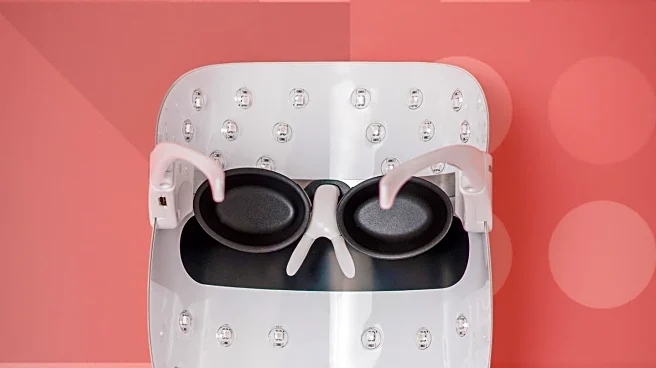What is the story about?
What's Happening?
The FDA has approved a new device developed by SetPoint Medical that offers a novel treatment for rheumatoid arthritis. This device, implanted in the neck, stimulates the vagus nerve to help manage inflammation by sending signals to the hypothalamus and spleen. The device aims to reduce the production of cytokines, proteins that regulate inflammation but can also damage healthy tissues. The approval follows a successful clinical trial where patients experienced significant improvements in symptoms, particularly those who had not responded to conventional drugs. The device is expected to benefit not only rheumatoid arthritis patients but also those suffering from other autoimmune diseases like multiple sclerosis and inflammatory bowel disease.
Why It's Important?
The approval of this nerve stimulator represents a significant advancement in the treatment of autoimmune diseases, potentially transforming the lives of patients who have struggled with ineffective treatments. By utilizing the body's own mechanisms to manage inflammation, this device offers a less invasive and drug-free alternative, which could reduce dependency on medications and their associated side effects. The broader impact includes potential applications for other autoimmune conditions, which could lead to improved quality of life for millions of patients. This development also highlights the growing trend of integrating technology with healthcare to create innovative solutions.
What's Next?
Following the FDA approval, the device is now available for implantation, with the first procedure already conducted at Northwell Health in New York. As more patients receive the device, further studies and monitoring will be essential to assess long-term efficacy and safety. Healthcare providers and insurance companies may need to consider coverage options for this new treatment. Additionally, ongoing research could explore expanding the device's use to other autoimmune diseases, potentially leading to broader applications and further FDA approvals.
















